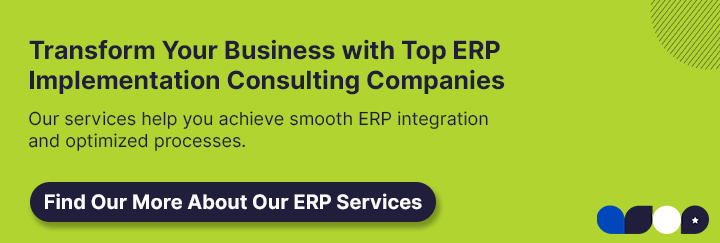AI & Gen AI in ServiceNow: Capabilities, Examples and Business Benefits
Updated on February 15, 2026
Artificial Intelligence (AI) and Generative AI (Gen AI) are redefining enterprise workflows, and ServiceNow stands as a leader in this transformation, embedding intelligent automation into its platform. By leveraging machine learning, natural language processing, and generative models, ServiceNow empowers SMBs to streamline operations, elevate productivity, and deliver personalized experiences. This post breaks down the types, capabilities, and real-world use cases of AI and Gen AI in ServiceNow and highlights how Cloud Consulting Inc. (CCI) helps businesses harness these tools for digital transformation and sustainable growth.
>> Related Post: Agentforce vs. Einstein AI: Strengths, Weaknesses, and Use Cases
Understanding AI and Gen AI in ServiceNow
AI in ServiceNow integrates a suite of technologies, machine learning (ML), natural language processing (NLP), and predictive analytics, to automate tasks and deliver data-driven insights. Generative AI, a subset of AI, creates original content like text, code, or workflows by learning from existing data. ServiceNow’s AI ecosystem, powered by tools like Now Assist and the Generative AI Controller, leverages proprietary large language models (LLM) and integrations with Azure OpenAI, Google Gemini, and others. These tools enhance modules such as ITSM, CSM, and HRSD, enabling intelligent automation across the enterprise.
>> Related Post: Best CRM Trends in 2025
Types of AI in ServiceNow
ServiceNow employs diverse AI types, each tailored to specific business needs, offering SMBs robust automation and intelligence:
1. Predictive Intelligence
Utilizes supervised and unsupervised ML to analyze historical data and predict outcomes, such as ticket prioritization or resource allocation.
– Capabilities: Automates ticket categorization, routes issues to optimal agents, and detects anomalies in workflows.
2. Natural Language Understanding (NLU)
Powers chatbots and virtual agents to interpret human language contextually, enabling seamless interactions.
– Capabilities: Supports self-service portals, resolves queries, and initiates workflows via conversational interfaces.
3. Generative AI (Now Assist and Gen AI Controller)
Generates original content text, code, or workflows using enterprise-optimized LLMs.
– Capabilities: Offers text summarization, knowledge article creation, code generation, and automated workflow design.
4. AIOps (AI for IT Operations)
Combines AI with IT operations to detect anomalies, correlate events, and analyze root causes.
– Capabilities: Proactively identifies disruptions and optimizes IT resource allocation.
Capabilities of AI and Gen AI in ServiceNow
ServiceNow’s AI tools provide tangible outcomes, particularly for SMBs seeking agility and cost-efficiency:
– Automation: Reduces manual workload by up to 50%.
– Summarization: Enhances case handoffs with summarized notes (e.g. Now Assist achieves 54% helpfulness rate).
– Content Generation: Auto-creates knowledge base articles, workflows, and code (50% of workflows generated via text).
– Personalization: Customizes experiences based on user role and context.
– Search Enhancements: Gen AI-powered AI Search boosts self-service by 10–14%.
– Text-to-Code/Flow: Speeds up development with 48% acceptance rate for AI-generated outputs.
– Responsible AI: Ensures compliance with GDPR, HIPAA, and promotes transparency.
Use Cases for SMBs
ServiceNow’s AI and Gen AI tools provide practical applications for SMBs across industries, driving measurable outcomes:
1. IT Service Management (ITSM)
- Use Case: It now assists SPM in analyzing feedback, prioritizing high-impact projects, and aligning resources with business goals.
- Benefit: Frees IT teams to focus on strategic initiatives.
2. Customer Service Management (CSM)
- Use Case: Employs virtual agents and case summarization to manage customer inquiries, reducing wrap-up time with post-call summarization in Now Assist for CSM.
- Benefit: Enhances customer satisfaction and agent efficiency.
3. HR Service Delivery (HRSD)
- Use Case: Automates onboarding and query resolution with AI-driven chatbots and knowledge article generation from employee feedback.
- Benefit: Improves employee experience and HR efficiency.
4. Strategic Portfolio Management (SPM)
- Use Case: Uses Now Assist for SPM to analyze feedback and prioritize high-impact projects, aligning resources with business goals.
- Benefit: Optimizes strategic planning for SMBs.
5. Developer Productivity
- Use Case: Text-to-code and text-to-flow features enable rapid app and workflow development, yielding a 5% weekly productivity gain for developers.
- Benefit: Accelerates custom solution development for resource-constrained SMBs.
>> Related Post: AI in ERP: Key Benefits and Implementation Types
ServiceNow Services Offered by Cloud Consulting Inc.
At Cloud Consulting Inc., we are dedicated to turning your business aspirations into reality through our comprehensive ServiceNow services:
- ServiceNow Professional Services
- ServiceNow ITSM
- ServiceNow Managed Services
- ServiceNow Consulting Services
- ServiceNow Support Services
- ServiceNow IT Business Management
- ServiceNow IT Operations Management
>> Related Post: Top 10 Emerging Trends of AI in ERP for 2025/2026
Conclusion
ServiceNow’s AI and Gen AI capabilities, driven by tools like Now Assist and the Generative AI Controller, are revolutionizing enterprise workflows in 2025. From predictive intelligence and NLU to generative content creation, these technologies automate tasks, enhance productivity, and deliver personalized experiences across ITSM, CSM, HRSD, and more. For SMBs, ServiceNow offers scalable, user-friendly solutions to compete in a digital-first world. Cloud Consulting Inc. stands ready to help businesses leverage these innovations, with tailored ServiceNow implementations and Integrow’s seamless automation.
FAQs
1. How does ServiceNow’s Gen AI reduce operational costs?
By automating tasks like summarization and workflow creation, Gen AI saves up to 6 hours weekly per agent, reducing labor costs by 15-20%.
2. Can ServiceNow’s AI tools integrate with third-party systems?
Yes, the Generative AI Controller supports integrations with LLMs like Azure OpenAI and platforms via APIs, ensuring compatibility.
3. What is the implementation timeline for ServiceNow’s AI features?
Implementation typically takes 2-6 months, with CCI providing streamlined onboarding for SMBs.
4. How does ServiceNow ensure AI data security?
ServiceNow complies with GDPR, HIPAA, and other standards, using encryption and privacy controls to protect data.
5. What training is required for SMBs to use ServiceNow’s AI tools?
Basic training (1-2 weeks) is sufficient for low-code features, with CCI offering comprehensive support for adoption.









